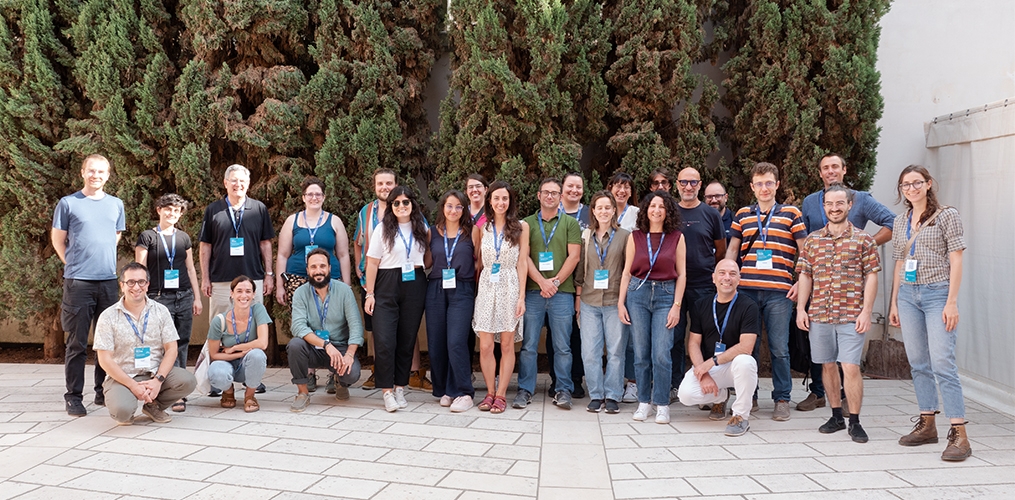
Over twenty researchers from multiple countries, including Algeria, Zimbabwe, Iran, Türkiye, and several European countries, gathered in Lecce this week to participate in the first edition of the “Semantic Academy – Intensive School: Boost your research with semantic artefacts“. In addition to the school, there were two workshops for experts in ontologies, providing a platform for the community to share their software knowledge and best practices.
The Semantic Academy Intensive School builds on the successful experience of six summer and winter schools. Since 2018, LifeWatch ERIC has co-organised them with ENVRI FAIR and the ENVRI Community on data and service FAIRness (Findable, Accessible, Interoperable, Reusable).
With the Semantic Academy, LifeWatch ERIC wants to enhance its training offer in the field, exploring the significant challenge of collecting, organising and making sense of vast amounts of data from various sources and disciplines, with a focus on data FAIRness and semantic research.
For five days, students had the opportunity to build their skills. They navigated the complex landscape of environmental data and advancing scientific understanding. The Semantic Academy’s primary objective was to provide students with comprehensive knowledge about developing and managing semantic artefacts such as ontologies, vocabularies, and thesauri. The approach alternated between theoretical lectures and practical group activities, ensuring the students gained hands-on experience.
Lecturers from some of the most active universities in this field made possible an intensive programme. Naouel Karam (Leipzig University) held a session on Semantic Web, Ontology Engineering. Clement Jonquet (INRAE – MISTEA – University of Montpellier) and Mark Musen (Standford University – BMIR) focused on the ontologies repository. Yifang Shi and Zhiming Zhao (both from LifeWatch ERIC – University of Amsterdam) and Gabriel Pelouze (LifeWatch ERIC) explored AI, Jupyter Notebooks, and other tools to support the research. Armando Stellato and Manuel Fiorelli (University of Roma Tor Vergata) gave the students insights into managing ontologies with different tools.
Over the years, various standards, approaches, and tools have been developed to facilitate the data lifecycle, from data collection to curation, publication, processing, and utilisation. In particular, contemporary semantic technologies offer a promising approach to describe and connect various data sources precisely. This method reduces obstacles to data discovery, integration, and exchange among biodiversity and ecosystem resources and researchers.
The Semantic Academy ushered in participants on Monday, 25th September, in the afternoon, with the presentation of the programme, introduction of LifeWatch ERIC and some ice-breaking activities. The curricular program ran from Tuesday to Friday and concluded with the awarding of participation certificates on the last day.